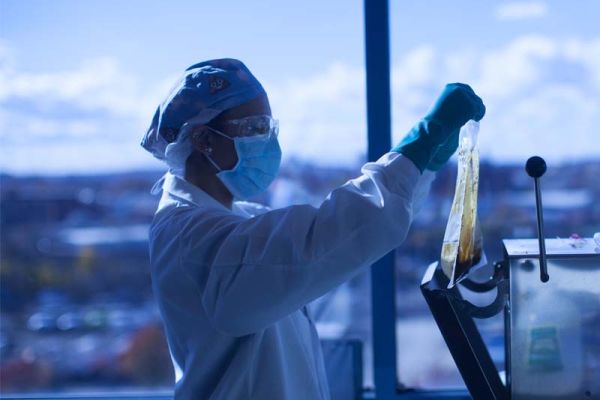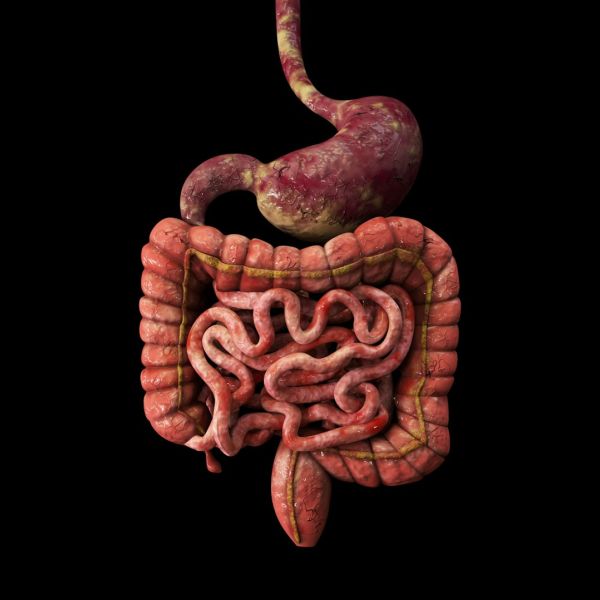microbiome radically improves health for all.
The Power of Your Microbiome
Bacteria: From Villain to Hero
We often think of bacteria as harmful invaders meant to be destroyed. While bacteria can make us sick, they also play an essential role in keeping us healthy.
This page explores our relationship with the communities of bacteria inside us and how we can use bacteria to solve some of the most pressing public health challenges.
“When we begin to understand our microbiomes, our symbionts, our inner ecosystems, our staggering multitudes–every walk bristles with opportunities for discovery.”
The Microbiome and Human Health
Nearly half the cells in our body are bacteria. These communities of microbes, known as the microbiome, are concentrated in our digestive system, but also live on our skin, in our lungs, and in other parts of the body.
The microbiome is in constant communication with our body. It plays a vital in digesting our food, training our immune system, modulating brain activity, and assisting with other bodily functions that keep us alive.
Because of its importance to our health, the microbiome is often referred to as a “hidden organ.”
More on the Microbiome
This collection of articles explores the deep and essential connections we have to the bacteria within us.
Microbes as Medicine
We don’t yet fully appreciate the importance of bacteria to our health—but we’re getting there!
Instead of regarding bacteria as hostile and foreign nemeses, medical professionals are using them to address some of the most difficult-to-treat diseases of our time. This includes malnutrition, diabetes, cancer, and neuropsychiatric disorders.
Investigational fecal microbiota transplantation (FMT) for recurrent C. difficile infections (CDI) is the most profound example of these treatments. Investigational FMT is a medical procedure in which stool and the bacteria it contains is transplanted from a healthy donor into a patient.
In research studies, fecal transplants resolve 80-90% of infections, showing efficacy where antibiotics have failed. In the past decade, investigational FMT has been used by physicians to care for C. difficile patients who exhausted all other medical options and remains an important treatment option today.
With such promising results, researchers worldwide are working to replicate the success of investigational FMT and C. difficile with other diseases.
Exploring New Microbiome-Based Treatments
Scientists are in the early stages of designing new microbiome-based therapies to help treat millions of patients around the world.
See some of the exciting, emerging research:

